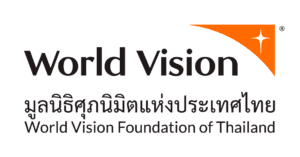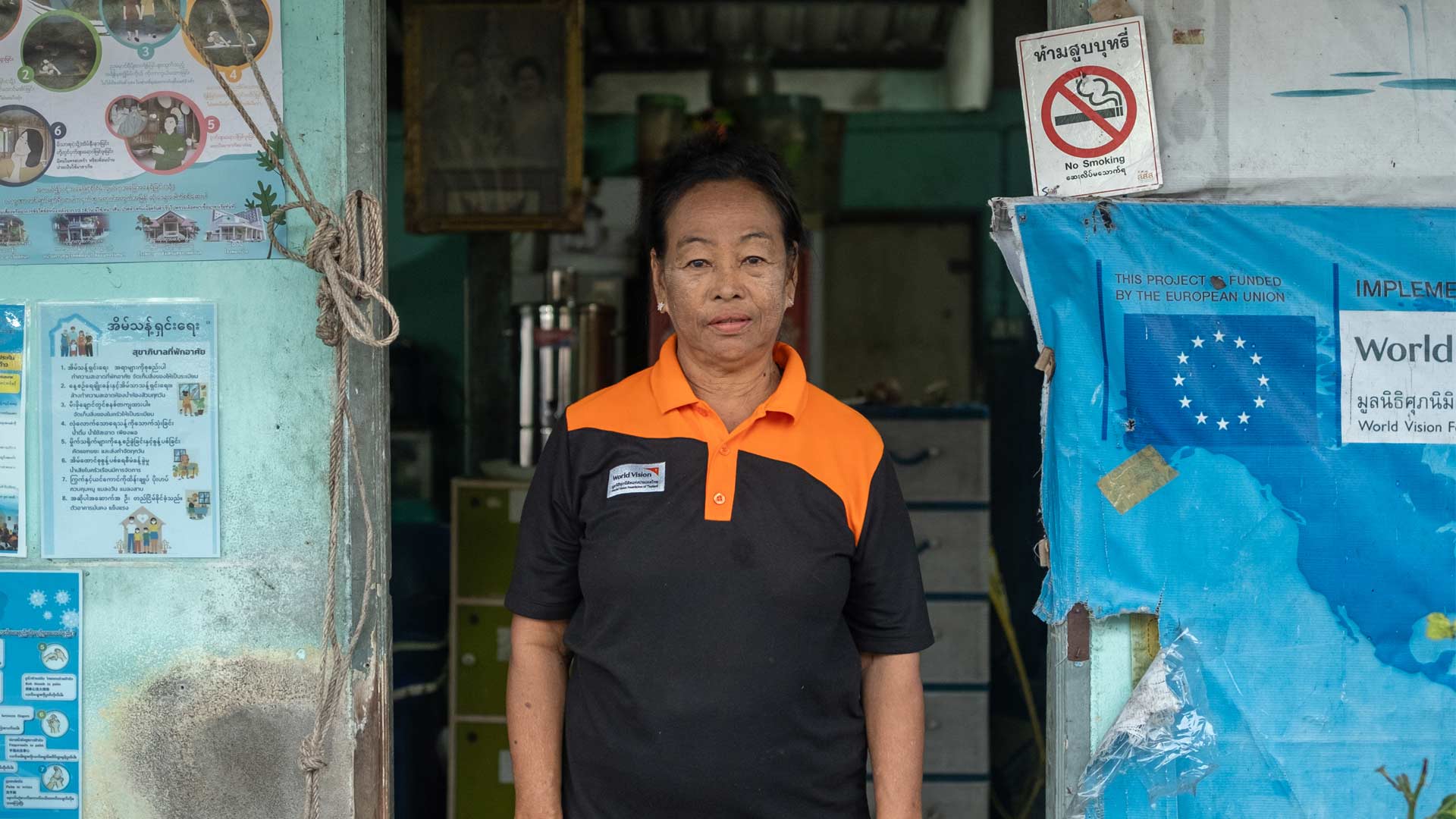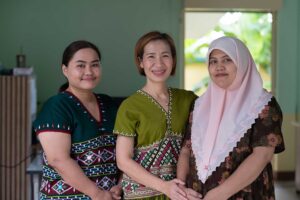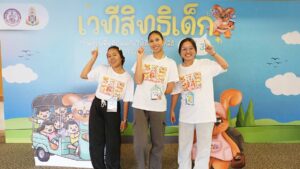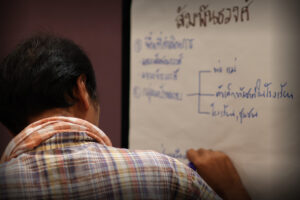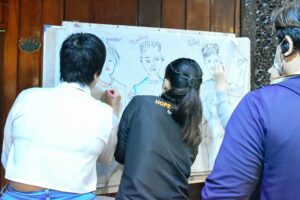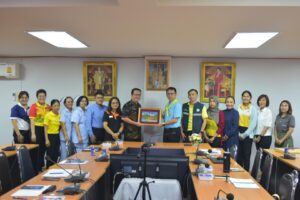Ma Tin Mar stands in her home in Ranong, which doubles as the World Vision Thailand’s Community Health Post for the local Burmese community, and reminisces over photos from her early days volunteering. Originally from Myanmar, she fled to Thailand during the 1988 uprising in Yangon and has been here ever since. Then in 1995, she became a migrant health volunteer (MHV) and has spent the last twenty-nine years working tirelessly to provide essential support to migrant populations in the areas of reproductive health, anti-human trafficking, and the control of tuberculosis and AIDS, thereby increasing her community’s access to local healthcare services.
“Back then, the migrant community here was in a very bad situation. When someone was sick, no one knew what to do, where to go, or how to access healthcare. A Burmese doctor working with World Vision Thailand came to our community. He asked, ‘Do you want to help our people from Myanmar access healthcare?’ I knew I wanted to make sure my community knew how to take care of themselves when they were sick, so I became a volunteer,” she recounts.
When she is free from her regular job, she devotes most of her time to her role as a MHV. “Whenever World Vision Thailand asks me to go to the community, I go,” she says. Her tasks vary daily: referring patients to the local Health Promotion Hospital, helping them communicate with hospital staff, providing counseling and health education services, and coordinating community outreach events focused on health literacy. She is a trusted member of the community for support, but it hasn’t always been that way.
“When I started as a volunteer trying to spread information on health literacy, I was not accepted by the community. People would say ‘Who are you and why are you here? Why are you telling us this information?’ But over time, we built a relationship. They saw that my intention was good, that I could provide helpful information, and they grew to know and trust me.”
Ma Tin Mar finds comfort in World Vision Thailand’s support, which improves access to healthcare.
“I find people in my community who are sick and need testing and treatment, but they don’t have the money for it. I used to worry, ‘How can I raise enough money to help this person? Who do I call for help?’ but now I know I can reach out to the World Vision Thailand’s team, and they will provide the support needed.”
Her experience highlights the vital role MHVs play in ensuring healthcare access and positive health outcomes for migrants.
“MHVs are the bridge between the health providers and the migrant community because hospitals do not always understand the community’s language or needs. Volunteers are from the community; we know its characteristics and language, so we can help the hospital staff and patients understand each other. Without MHVs, the community wouldn’t know what services exist at the hospital or how to prevent disease, and they wouldn’t be able to communicate their symptoms to health staff or doctors.”
With nearly 30 years as a MHV, Ma Tin Mar has countless success stories. She smiles and says “There have been many times I’ve identified a case of TB in the community through outreach and referred the case to the hospital for diagnosis and treatment. Then I help support them with at-home DOT treatments. These people are often the main income generators for their families, so when I see them get treated and return to normal life and work, they are very thankful for me and I feel extremely proud to be part of this work.”
When asked about her personal dreams for the future, Ma Tin Mar focuses entirely on her community.
“I am committed to helping my community be healthy. I’m content with what I have in life; now the only thing I want is to learn more about how to take care of other people. I want to learn more about disease control and prevention so I can share this knowledge with my community. The situation in Myanmar is getting worse, and with that, more and more people are moving who don’t know how to prevent disease or access healthcare services. I want people in my community to be healthy, to be able to take care of themselves and access healthcare so they can work more, earn more, and send money home. With the support of World Vision Thailand, this is possible.”
